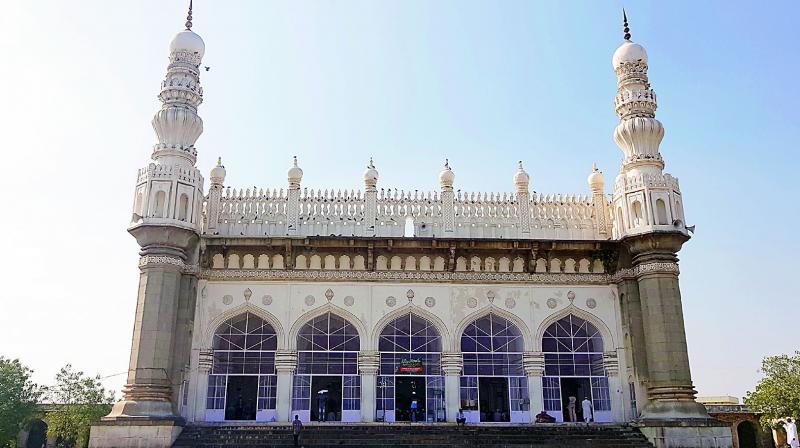Hyderabad: Masjid work quality not up to the mark'
Restoration halted many times for lack of fund: Locals.

Hyderabad: The state department of heritage’s tall claims about restoration of the Hayat Bakshi Masjid at Hayathnagar do not seem to be borne out by activity on the ground.
Residents are happy that the government is undertaking preservation of the mosque but are not satisfied with the quality or pace of work.
Hayat Bakshi Masjid, also known as Hayathnagar Grand Mosque, was built in 1672 during the reign of Abdullah Qutub Shah, the seventh ruler of the Qutub Shahi dynasty.
It was built by Hayat Bakshi Begum, the daughter of the fifth Sultan of Qutub Shahi dynasty, Mohammed Quli Qutub Shah; wife of sixth ruler Sultan Mohammed Qutub Shah; and mother of seventh ruler Abdullah Qutub Shah. She was also known as “Maa Sahiba”.
The mosque, built in Qutub Shahi style of architecture with a Sarai (rest house for travellers), is one of the ancient mosques in India. It has five double arches and two grand minarets. As the mosque was situated on the main route to Surat and Masulipatnam (Machlipatnam) at that time, Hayat Bakshi Begum constructed 134 rest rooms for the traders coming to Golconda on these routes. Another attraction at the Masjid is the Haathi Bowli (Elephant Well) from where elephants drew water.
The department of archaeology and museums first began work on conservation and restoration of the mosque at an estimated '98 lakh in June 2010.
The project was divided into two phases. So far renovation and restoration of minarets, Stucco work on the minaret’s parapets, water tightening on the parapet roof, grouting (flush pointing) and plastering of almost 50 rooms at the Sarai have been completed.
Residents complain that work was halted many times for lack of funds. Also, the pace is very slow. Mohammad Saleem, who attends regular prayers at the mosque, said the plaster work done inside the mosque is giving way. Residents had their reservations about developing the mosque as a place of tourist attraction. They feel religious places should not be turned into picnic spots.

